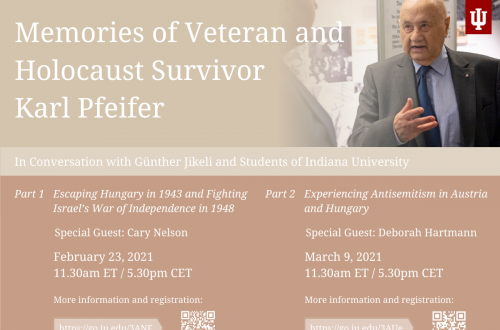When Christopher Hitchens died, this blog published panegyrics. This was not the case when Eric Hobsbawn died. Alan A of this blog determined that Hobsbawn was “wicked” (subsequently changed) and wrote a post largely consisting of an extract of a review of one of Hobsbawm’s books by Hitchens.
Regular readers of this blog will be aware that comments below posts are not viewable one week after a post goes up. In this instance, it is a shame as an interesting debate occurred between some of this blog’s regular commentators from both below and above the line. Aymenn Jawad Al-Tamimi suggested that there were double standards at play between the treatment by this blog of Hobsbawm and its treatment of Hitchens. In my opinion, Aymenn’s complaint is justified.
He accurately quoted Christopher Hitchens as saying in 2004:
The media cliche about the war is that it‘s like Vietnam. The Vietnamese were a very civilized foe and if they had had weapons of mass destruction, for example, wouldn‘t have used them and didn‘t target civilians, did use women as fighters and organizers, were not torturers and mass murderers and so forth.
In a dispute, another regular commentator, declared that Hitchens was mentioning “facts.”
This is simply not true. The North Vietnamese Communists and the Viet Cong certainly did use torture. Guenter Lewy (America in Vietnam [Oxford University Press, 1978], pp.337-8) discusses the treatment of American prisoners :
The most frequent mode of torture was to put a prisoner into ropes – arms tied tightly behind the back and head and shoulders forced down until the mouth practically touched the feet. As a result of constricted circulation, after a while the pain became so excruciating that the prisoner was prepared to do anything his captors demanded….. Col Kenneth North told the House Foreign Affairs Committee that according to statistics kept by the prisoner organization, approximately 95 percent of the men in the North Vietnamese prisons were tortured.
As regards mass murderers, one can consider what happened at Hue early 1968 when, in the course of 26 days:
some 5,800 civilians were killed or abducted; most of the missing are considered dead…. mass graves were discovered gradually during the following 18 months and yielded some 2,800 bodies. The lack of visible wounds on a large number of these victims, who included two Catholic priests, indicated that they had been buried alive.
Source: Ibid., p.274.
Commenting on terror killings, Lewy adds (p.277):
The killing of noncombatants through VC terror, on the other hand, was systematic and intentional, in violation of the most basic principles of humanitarian conduct in time of war forbidding deliberate attacks on the civilian population.
Mass murders by Vietnamese Communists had occurred even before the Second IndoChina War had begun. Communist policy in the Soviet Union and China had led to millions of deaths as a result of Stalin’s collectivization and Mao’s so-called Great Leap Forward. Michael Lind (Vietnam the Necessary War: A Reinterpretation of America’s Most Disastrous Military Conflict [Free Press, 1999], p.152) explains what happened in Vietnam:
Collectivization began on March 2, 1953 with the promulgation of a “Population Classification Decree” that divided the subjects of the Hanoi dictatorship into five categories from “landlord” to “agricultural worker.” Somewhere between 10,000 and 100,000 Vietnamese were summarily executed for being of the wrong class category; many more were imprisoned in the Vietnamese Gulag.
After the war, many Vietnamese were so scared as to what the Communists would do that they left the country in rickety boats. The United Nations High Commissioner for Refugees estimated that 1 million people fled Vietnam in the aftermath of the the 1975 communist takeover of which some 400,000 died at sea.
Source: Associated Press, June 23, 1979.
Those fleeing had good cause to be worried. According to Doan Van Toai, after the fall of Saigon, the whole of the county was turned into a “Vietnamese Gulag” with food rations dependent on whether the Communist Party bosses were obeyed. And then, after hard days at work in rice fields, free time was restricted as peasants had to attend indoctrination lessons. (Source: Human Events, March 17, 1979.) And in terms of deaths etc, Human Events (August 27, 1977) reported one former elected Communist government official estimated by 1977 that
between 50,000 and 100,000 people had been slaughtered outright; that there are another 200,000 or more in the “re-education” camps; an additional 200,000-300,000 who have been processed through these camps, released, but kept under the equivalent of house arrest; and perhaps one million or more sent to “new economic areas” to perform forced labour.
And so it goes on.
Michael Lind (Vietnam The Necessary War, [Free Press, 1999], p.156) comments:
members of the Western left who minimised or made excuses for the North Vietnamese Land reform terror were apologists for state-sponsored genocide
There does indeed seem to be a double standard.
Alan A adds
Hitchens made many foolish and at times obnoxious statements, which have been rightly criticised.
However, the contrast with Hobsbawm is this. Hobsbawm was a member of the Communist Party of Great Britain, and in that capacity was instructed to and agreed to write articles supporting the policies of the USSR, including a lying defence of the invasion of Finland, which was a product of the Nazi-Soviet pact. He remained a member of this party until the year it was dissolved.
Hitchens, may have been wrong about many things. But he was wrong on his own account.
If the point is that we don’t allow criticism of Hitchens on HP, that’s also wrong.
Michael Ezra adds:
I think a discussion between Alan A and myself would have been better below the line, but I do not see Alan A’s excuse as valid. Hobsbawm was voluntarily a member of the Communist Party. He acted in accordance with the Party’s instructions because that is what CP members did. If it is “wicked” to be an apologist for Stalin and excuse Stalin’s crimes, then it should also be “wicked” to be an apologist for the North Vietnamese and the Viet Cong and excuse their crimes. Whether one does it in the name of the Party or outside the Party I do not see as a deciding factor.
Hitchens was still denying the crimes from Vietnam as late as 2004. I am not aware of anything that Hitchens said or wrote more recently to suggest that he had changed his stance before he died. This is relevant if it is true that Hobsbawm never recanted his earlier views.
Alan A responds
Communism tends to lead to the charnel house. That said, it was news to me that the Viet Cong had killed as many as 100,000 civilians.
I do think that there is a difference between being wrong, or misinformed, about how the Viet Cong had conducted their wars, on the one hand, and saying – as Hobsbawm did – that the murder of millions was worth the ‘chance of a new world’. There’s also a difference between being wrong, and lying about something: particularly if you’re lying because you’re a member of an organisation which requires you to lie.
Michael Ezra rejoinder
One cannot simply dismiss Christopher Hitchens’ comment that the Vietnamese (and here, he is surely referring to the North Vietnamese Army and the Viet Cong) “were not torturers and mass murderers and so forth” just as him being wrong or misinformed. As he recounted in his memoirs, Hitch 22, Hitchens was a student at Oxford University in the mid-late 1960s while the Vietnam War was occurring. He was an activist who admitted that he “attended every demonstration that I could against the war in Vietnam.” He went on to become features editor of Socialist Worker, a Trotskyist newspaper he used to sell. Moreover, he was familiar with the contents of letters in The Times newspaper supporting the Vietnam War. One could go on, but given that he had also, much more recently, written a polemical book attacking Henry Kissinger, it is fair to say that he deliberately chose either what he wanted to believe or what he wanted to say about the People’s Army of Vietnam (North) and the National Liberation Front (Viet Cong.)
Alan A again makes the point about the distinction between saying something false directly because someone wants to and saying something false because they belong to the Communist Party and the instructions from the Party which are followed are to say something false. The implication from Alan A is that the latter is worse than the former. I really do not see why this should necessarily be the case. Hitchens voluntarily denied the crimes of PAVN and the NLF. The effect of this is to make them seem much better than they were and it also can imply that USA were much worse than they were. Such false propaganda is useful to those who recruit for Communism. Given Hobsbawm was voluntarily a member of the CP and given he could have left and hence it can not really be said that he was coerced into reporting false information, I do not see how the intervening Party makes a difference. In fact, if Hobsbawm had been coerced into reporting false information, then from a moral point of view, that would work in his favour and not against him.


